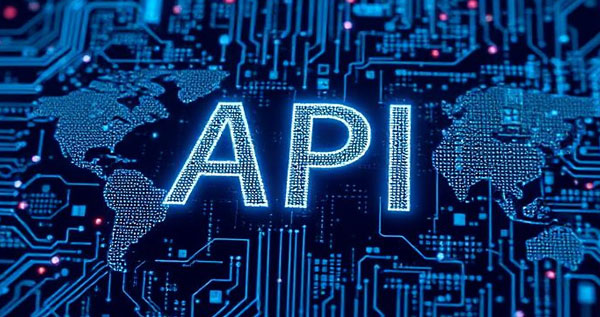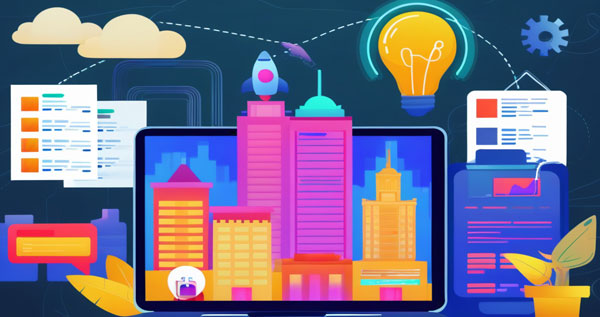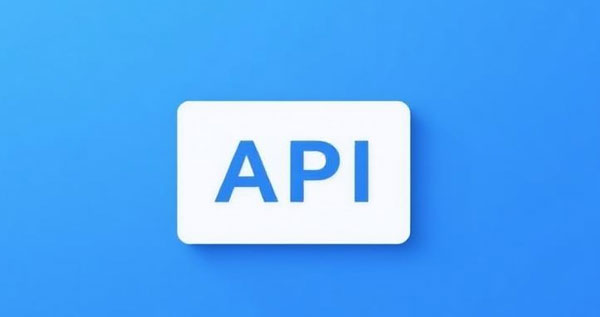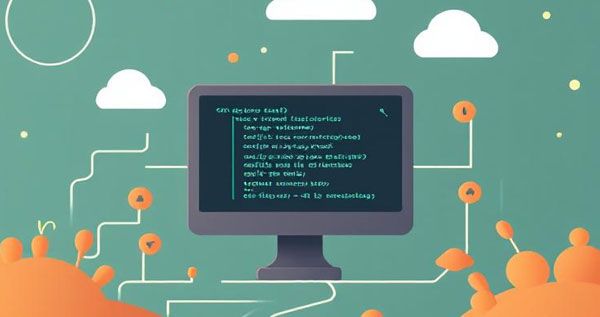From Web Scraping to API Data: A Comprehensive Comparison of Data Retrieval Strategies
Introduction
With the rapid development of the digital era, data has become an essential resource for corporate decision-making, product development, and market competition. Whether it’s market trend analysis, user behavior research, or supply chain management, data drives continuous innovation within businesses. When it comes to data acquisition, traditional web scraping and API data collection are the two primary technical methods, and proxy IP technology is widely used to bypass anti-scraping measures and improve data retrieval success rates. This article will compare the pros and cons of traditional web scraping and API data collection from multiple perspectives, discuss how to choose the best solution based on actual needs, and provide comprehensive data acquisition strategies by incorporating LuckData products (API data collection solutions and proxy IP services).
1. Traditional Web Scraping Technology
Technology Overview
Traditional web scraping technology primarily relies on simulating browser requests, then parsing the HTML structure of the web page using libraries (such as Python’s Requests, BeautifulSoup, lxml, etc.) to extract the target data. In cases where the content is dynamically generated by JavaScript, tools like Selenium can be used for data extraction.
Advantages
High Flexibility: Web scraping can retrieve data from various types of web pages, whether static or partially dynamic.
Wide Applicability: It is suitable for acquiring publicly available data, especially when websites do not provide an API.
Autonomy: Businesses or developers can customize scraping strategies based on their needs, performing real-time data processing and integration.
Disadvantages
Strict Anti-Scraping Measures: Many websites implement IP restrictions, CAPTCHAs, and dynamic loading to prevent scraping, posing challenges to data extraction.
Complex Data Parsing: Since web pages have diverse and ever-changing structures, extracted data often requires extensive cleaning and structuring, which is time-consuming and prone to errors.
Legal Risks: Scraping personal or copyrighted data without permission could lead to legal consequences.
Example Code
Here is an example of simple web scraping using Python's Requests and BeautifulSoup:
import requestsfrom bs4 import BeautifulSoup
url = "https://example.com"
headers = {"User-Agent": "Mozilla/5.0"}
response = requests.get(url, headers=headers)
if response.status_code == 200:
soup = BeautifulSoup(response.text, "html.parser")
title = soup.title.text
print("Page Title:", title)
for link in soup.find_all("a"):
print(link.get("href"))
else:
print("Request failed, status code:", response.status_code)
2. API Data Collection Technology
Technology Overview
API data collection involves directly retrieving data through publicly available APIs provided by data sources. Typically, APIs return data in JSON or XML format, which is highly structured and easier to parse. Accessing an API generally requires authentication (such as API keys, OAuth, etc.), and usage is subject to rate limits and data quotas.
Advantages
Structured Data: API responses are standardized, making it easier to parse and process the data with less cleaning.
Legality and Compliance: APIs are typically provided legally by data providers, and users have obtained explicit authorization, which reduces legal risks.
High Stability: Since API data retrieval avoids anti-scraping measures, it offers better stability and higher data retrieval success rates.
Disadvantages
Limited Data Sources: APIs only provide access to data that the data provider has made available, and not all websites offer an API.
Usage Limits: API calls are often restricted by rate limits, quotas, or other usage caps, which could be a bottleneck for large-scale data collection.
Reliance on Third Parties: If the data provider’s API experiences downtime or changes, it could affect data retrieval efficiency.
Example Code
Here is an example of calling an API using Python to retrieve data from the LuckData Walmart API:
import requestsheaders = {
'X-Luckdata-Api-Key': 'your luckdata key'
}
response = requests.get(
'https://luckdata.io/api/walmart-API/get_vwzq?url=https://www.walmart.com/ip/NELEUS-Mens-Dry-Fit-Mesh-Athletic-Shirts-3-Pack-Black-Gray-Olive-Green-US-Size-M/439625664?classType=VARIANT',
headers=headers
)
print(response.json())
3. Proxy IP Technology in Data Scraping
Technology Overview
Proxy IP technology is used to forward requests through intermediary servers, hiding the real IP address and bypassing anti-scraping measures. Proxy IPs can be categorized into data center proxies, dynamic residential proxies, and unlimited dynamic residential proxies. These services effectively distribute requests, reducing the risk of IP bans, and improve data retrieval success rates.
Advantages
Bypass Anti-Scraping: Proxies help mitigate the risk of being banned due to repeated requests from a single IP.
Increased Success Rate: Proxy IP rotation ensures more stable and successful data scraping, especially for large-scale data collection tasks.
Conceal Real Source: Proxies help protect the company’s internal system and real user IPs, enhancing network security.
Disadvantages
Cost: High-quality proxy services often require an additional expense, which may increase the cost for some businesses or startups.
Management Complexity: Proxies require ongoing maintenance and monitoring to ensure their availability and performance, adding to the complexity of management.
Example Code
Here is an example of using LuckData’s proxy IP for data scraping:
import requestsproxyip = "http://Account:Password@ahk.luckdata.io:Port"
url = "https://api.ip.cc"
proxies = {
'http': proxyip,
'https': proxyip,
}
data = requests.get(url=url, proxies=proxies)
print(data.text)
4. Comparative Analysis: Traditional Scraping vs. API Data Collection
Comparison Dimensions
Legality and Compliance
Traditional Scraping: Scraping data without authorization can violate privacy regulations, leading to legal risks.
API Collection: APIs are generally legally open and provide explicit authorization, reducing legal risks.
Data Quality and Structure
Traditional Scraping: Data from web scraping is diverse, requiring extensive cleaning and structuring.
API Collection: API responses are standardized, making data processing and analysis easier.
Efficiency and Stability
Traditional Scraping: Susceptible to anti-scraping measures, leading to lower data retrieval efficiency and success rates.
API Collection: Generally offers better stability and higher success rates, though it might be limited by rate and data quotas.
Flexibility and Applicability
Traditional Scraping: Essential for websites without APIs, but requires more technical investment and ongoing maintenance.
API Collection: Suitable for data sources with well-defined APIs but not applicable to all websites.
Recommendations
If the data sources are extensive and the formats are not uniform, combining traditional scraping with proxy IP technology might be the best solution.
If the data provider offers a legitimate API, prioritize using API collection for compliance and data quality reasons.
Depending on the specific needs, businesses can adopt a hybrid strategy by leveraging both APIs for primary data acquisition and scraping for supplementary data.
5. LuckData Products and Application Scenarios
LuckData API Products
LuckData provides API interfaces for over 1,000 platforms, including Walmart, Amazon, Google, and TikTok. The key features include:
Flexible Pricing: Various plans based on request rate and credits, catering to different business needs.
Stable Data: Structured data with frequent updates, facilitating further processing.
Legal Compliance: Data is obtained through authorized means, reducing legal risks.
Example code for using the API has already been shown in previous sections, and businesses can adjust the API parameters based on their specific needs.
LuckData Proxy IP Services
LuckData’s proxy IP products offer several options, including data center proxies, dynamic residential proxies, and unlimited dynamic residential proxies, with the following benefits:
Large IP Pool: Covering over 200 countries and regions with more than 120 million dynamic residential proxies.
High Concurrency and Low Latency: Ensures fast, stable connections and quick responses.
Security and Compliance: Adheres to privacy protection standards, ensuring secure data retrieval processes.
Example code for using proxy IP services has already been provided in earlier sections, helping businesses improve success rates in large-scale data scraping tasks.
Application Scenarios
Market Trend Analysis
Companies can use authorized APIs to collect structured data from multiple e-commerce platforms, social media, and news websites, enabling market trend analysis, consumer preferences, and competitor insights. This method allows startups to quickly understand market dynamics and develop targeted market strategies.Brand Monitoring and Risk Warning
Establish automated brand monitoring systems to regularly collect brand-related information from the web using both APIs and proxies. This helps identify counterfeit or harmful content early, protecting brand reputation and supporting legal actions.User Behavior Analysis and Product Optimization
Businesses can integrate data from different sources to understand consumer behavior, leading to product improvements and marketing strategy optimization.Supply Chain and Price Monitoring
Using API data collection tools, companies can monitor product prices, inventory, and supply status across multiple suppliers and platforms, helping with procurement strategy adjustments and inventory management.
6. Conclusion and Future Outlook
This article has provided a comprehensive comparison of data collection strategies from web scraping, API data retrieval, and proxy IP applications. The key conclusions are as follows:
Legality and Compliance: API data collection offers clear authorization and lower legal risks, while traditional scraping may pose compliance challenges.
Data Quality and Stability: API data is structured and stable, making it easier to use, while traditional scraping requires more data cleaning and is less stable.
Efficiency and Applicability: Businesses can choose between traditional scraping and API collection based on data sources and requirements, often adopting a hybrid approach.
Looking ahead, with the further development of AI, big data, and cloud computing technologies, data collection will move toward greater automation and intelligence. Cross-platform data integration and sharing will become a new trend, requiring businesses to continuously update their technical approaches to ensure efficient, compliant, and valuable data acquisition.
LuckData, as an industry-leading provider of data collection and proxy services, offers stable, efficient, and compliant solutions for businesses, helping them gain a competitive edge in a fast-paced market.
References and Appendices
Relevant API documentation and product introductions : https://luckdata.io/marketplace/detail/walmart-API




